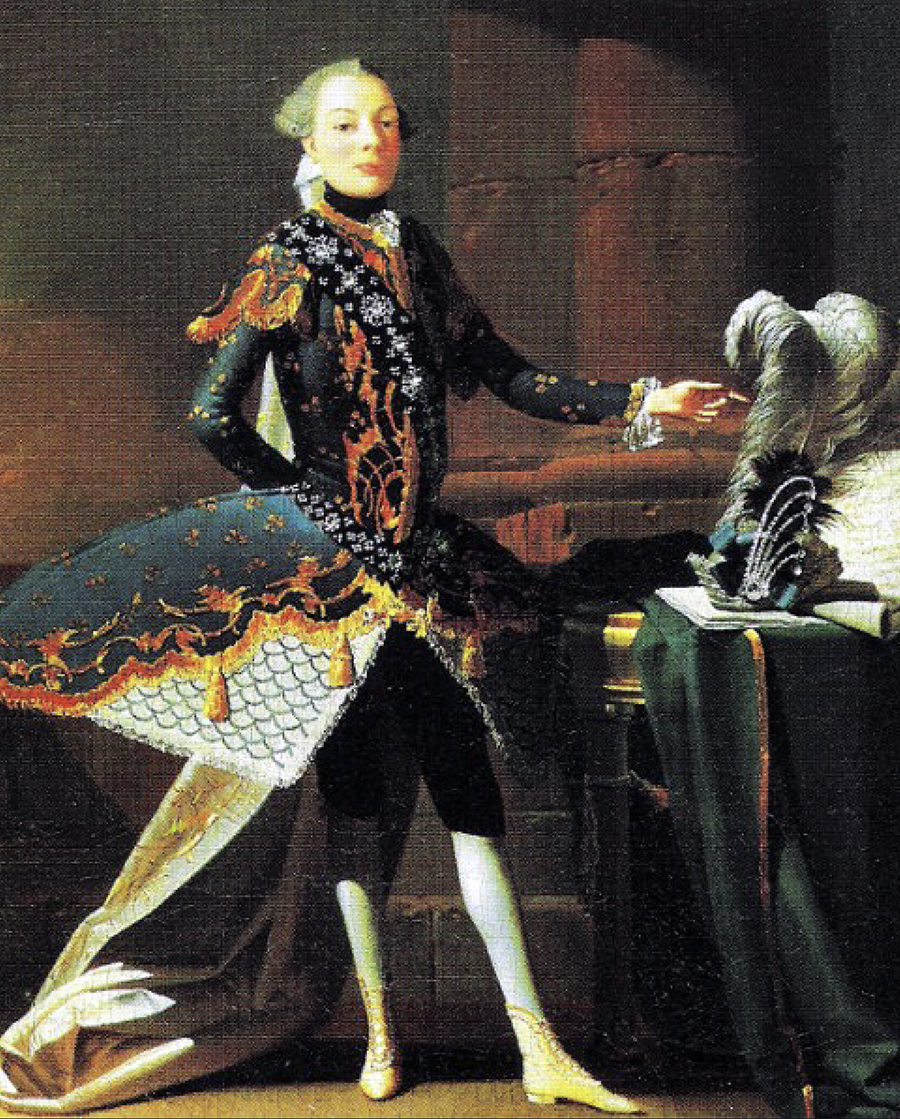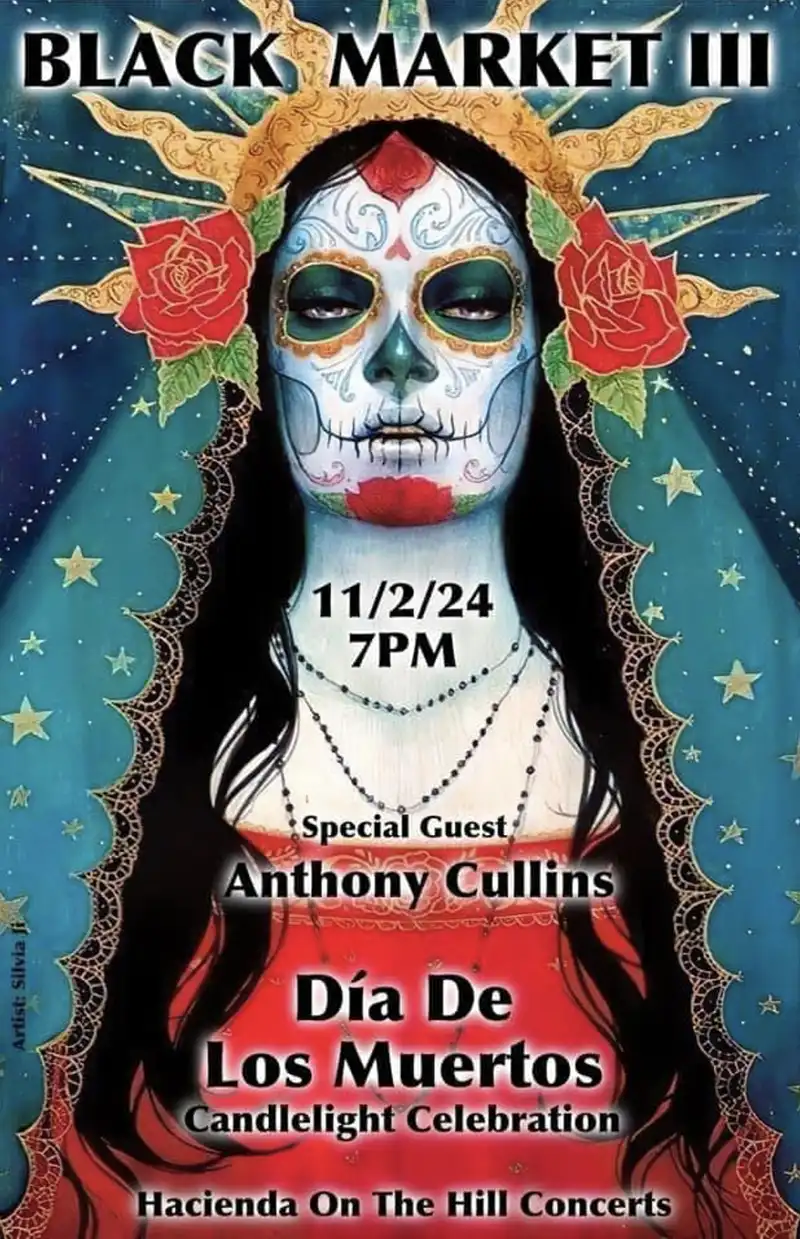Raider of the Lost Arts
“Castrati” or the Male Soprano
You’ve just downloaded an album of live recordings by arguably the most renowned band of the ’70s. An ominous F# drone swirls through the first few seconds of the three-disc set, an introductory invocation of the wild and wicked spell that is about to be cast over 18 songs comprising two-and-a-half hours of bludgeoning neo-blues music. An absolutely brutal groove then kicks in, compelling the most wanton of headbanging on your part. It’s superlative, but you know the singer is going to join in any moment now, and whatever they contribute couldn’t possibly add to or improve the prevailing vibe, couldn’t come close to augmenting the aggressive perfection so devastatingly orchestrated and executed by the other three members.
But oh, how wrong you are; a banshee wail bursts forth, an unholy, keening battle cry onomatopoetically invoking the bloody Viking invasion of which he subsequently sings. He dips low and resonant on the verses and, fittingly, climbs back up on the “choruses,” rising to the original clarion call once again. All doubts are erased as you realize the singer couldn’t have done anything else to make the point more plain; an unstoppable invading force is coming for you, and your fear level is where it should be considering you’re about to be eviscerated and/or enslaved and not necessarily in that order. All that’s missing is your involuntary excretion of bodily waste.
The brazen vocalist goes on to easily match wits with every successive groove and riff, with no note being too high, and with either bell-like clarity or a scabrous growl. The initial track heard was the classic “Immigrant Song,” the singer is of course the one and only Robert Plant of the mighty Led Zeppelin, and he is in peak form as he tells the histrionic-laden tale on the 2003 live release How the West Was Won with his inimitable high tenor that would set a precedent followed by myriad singers over the next three some-odd decades. This limit pushing, risk-taking, fleeting phenomenon would eventually be abandoned for the quotidian, lead-role-in-a-cage safety of lower pitches, and what a shame that is, considering the exhilarating result.
**************

Castrato Carlo Scalzi, 1737.
Castrati were certain 18th century male vocalists who had been de-testicled, vasectomized, or otherwise gelded just before puberty to keep the voice from dropping during adolescence (and one hesitates to ask how this connection was discovered). The dangerous procedure, implemented with cold baths and too much opium as sedatives, also apparently caused the bones to grow slightly longer than normal, including the ribs, which supposedly increased a castrato’s lung capacity. The resulting effect––a man who could sing in the alto and soprano ranges using a full chest voice instead of an overdriven falsetto, and with unprecedented sustain––was apparently stunning enough to clandestinely maintain the inhumane, all-too-often fatal practice until the late 18th, possibly early 19th century. The most famous castrato to actually survive and enjoy an illustrious career was Carlo Maria Michelangelo Nicola Broschi, otherwise known by his operatic stage name––Farinelli, whose life is depicted in the 1994 biopic also bearing this sobriquet.
Meanwhile, sanctioned workarounds––that trace their origins to the same country as the questionable practice: Italy––were developed to produce similar effects without corporeal modification. The bel canto technique rose to prominence in opera, which allowed some tenors like Caruso and Pavarotti to hit the almighty high C5 even late into their careers. Countertenors honed and projected their falsettos to achieve the range and pure tonal quality of children’s voices.
It wasn’t until the mid 20th century that any high profile men outside of opera started howling to the rafters. Little Richard was one of—if not the first—to push the envelope and find the higher, galvanizing gear, followed by devout acolyte and occasional coverer Paul McCartney, whose own copious experiments in the upper registers culminated in the raucous “Helter Skelter” and the emphatically soulful “Oh Darling” with the Beatles, as well as a handful of Wings cuts. R&B belters like Al Green, Stevie Wonder, Steve Winwood, Sam and Dave, and James Brown did some of this limit pushing as well, with Brown taking it about as far as it could possibly go (he could––and did––hit E6 on a regular basis: “EEEEEEYEWW!”).
In the late ’60s, Ahmet Ertegun signed two crucial British bands to Atlantic Records: Yes, and the aforementioned Led Zeppelin, with both outfits featuring singers possessed of the ways and means to reach the heady vocal stratosphere. Plant had a great low-range resonance and clarity of tone that carried over perfectly when overdriven into the upper reaches for which he strove more consistently than anyone else yet had. Jon Anderson, the elven-voiced spearhead of the former band, couldn’t match Plant’s low end below C4 with his pinched, gravelly speaking voice but was able to sustain his upper register explorations through more of his career due to his higher than average range and prudent pacing. Anderson also had the neck-and-neck support of bassist Chris Squire’s backing vocals and, with the assistance of guitarist Steve Howe, made it possible for Yes to faithfully reproduce their lush three-part harmonies live.
The high male vocal became a coveted novelty as it proliferated into the ’70s with undeniable appeal. With the rise of electric ensembles in the ’50s and ’60s, extra care needed to be paid to bands’ volumes and arrangements or the lead singer would get lost in the din, swallowed up by the noise, but the “male soprano” made moot concerns of such worries, as they cut through a burgeoning mix with ease, piercing through and captivatingly riding over any sonic maelstrom, allowing the band to be as loud and boisterous as they desired. This could work both ways; Zeppelin showed that the right singer possessed of a multi-octave range could free a band up to widen the amplitude of the types of material they could perform and record, hence the myriad, wonderful peaks and valleys and lights and shades of Zeppelin’s resulting output (How the West Was Won features a fantastic three-song acoustic set in the middle, and they all but singlehandedly invented loud-quiet-loud dynamic shifts within single songs, e.g., “Ramble On” and “Stairway to Heaven”).
Something about these masculine singers giving it everything they had over voluble, visceral music created a niche that disenfranchised, desperate-for-angst-release suburbanites coming down from the ’60s hangover in declining industrial towns could claim as their own. Subsequent bands like Black Sabbath, Aerosmith, Kansas, AC/DC, Queen, Foghat, Boston, Styx, Kiss, and Rush all carved out wide-swath listenerships that were highly appreciative of the extra effort put in by the powerful lead singers (as evidenced by their massive record sales). They captivated denizens of the depressed ’70s who were highly enamored with the escape potential of the flashy, grandiose aspects of vocal virtuosity and anthemic passion.
In the ’80s, male sopranos crossed over into multiple genres. Having already manifested in the New Wave of British Heavy Metal (Iron Maiden, Judas Priest, etc.) and pop rock (Journey, Foreigner, Def Leppard, Van Hagar, the Police, U2, Duran Duran, etc.), high male vocals expanded into glam and hair metal (Guns ‘n’ Roses, Mötley Crüe, Bon Jovi, etc.), and R&B-based pop (Prince, Michael Jackson). In the cocaine decade, vocal heroics became de rigueur in their voluble ubiquity almost like its own form of over-the-top advertisement for a like-minded era, a fist-pumping soundtrack to the endless party parade.
Seattle took over this tradition in the alternative-rock-dominated early ’90s. Kurt Cobain, Eddie Vedder, and Layne Staley and Jerry Cantrell fronted their respective bands––Nirvana, Pearl Jam, and Alice in Chains––with their bombastic explorations of the larynx’s upper limits, but it was Soundgarden’s Chris Cornell who would become the emblematic paragon during the grunge era. 1991’s Badmotorfinger, which found Cornell at his absolute jaw-dropping apogee, would not be nearly as visceral an aural experience without his unmatched range and intensity, combining Plant’s five,-octave brio with the feral growl of Ronnie James Dio to create his one-of-a-kind preternatural roar. Jeff Buckley and his coattail-riding protégé Jimmy Gnecco (both solo and with Ours) were noteworthy runner-up contemporaries of Cornell who also bore the torch.
The last 20 years have seen the “Castrati” narrowed down to Bruno Mars and St. Paul (and the Broken Bones) in the R&B realm, Mars Volta under the progressive rock rubric, Fun under the alt-pop aegis, and Zeppelin aficionados Greta Van Fleet bringing back the hard rock, somewhat of an adrift anomaly in their lonely throwback raft on a sea of dance-pop.
**************
Listening to men shriek over music isn’t everyone’s cup of tea, and it is certainly not sustainable over a long-haul career; already having to lower some of the songs’ melodies at the time How the West Was Won was recorded on the 1972 tour, with more degradation plainly evident on 1976’s The Song Remains the Same (which had been filmed and recorded only a year later in ’73), Robert Plant’s days as a limit-pushing wailer were clearly numbered. The majority of men are tenors whose voices hit the ceiling––or “break”––at Bb4, and overdriving a full chest voice past that upper limit, which Plant did way too often, becomes more physically untenable as one ages, especially considering the consistency of the abuse (not to mention the substance abuse, including the emphatically detrimental smoking and overconsumption of alcohol), the lack of formal training, and the fact that our voices tend to drop naturally over time. If anything has held Robert Plant back from a full-scale Zeppelin reunion other than John Bonham’s glaring absence, it is the irrefutable knowledge that he is no longer capable of doing justice to the hero notes––nor the corporeal magnificence––of the early 20s “Golden god” on the first several albums, at least not without drastic, purist-alienating changes of key or other such compromises to the original arrangements.
The once mighty Chris Cornell––who also drank and smoked––was foolhardy enough to try and reproduce the grandeur of his glory-day work during the various pre-death reunion tours of the ’10s, and subsequently proved why it was ill advised; his voice was pinched and forced on the high notes of the older material, with no trace of the ferocious growl that was his early ’90s trademark (one wonders if the futility of trying to provide prime-era vocals in his 50s contributed in any way to the depression catalyzing his 2017 suicide). There was only the rollercoaster tension of watching him hold on for dear life to hit the notes by any means necessary.
If there are any male vocalists still going for the hero notes, they’re either anomalous exiles or have gone underground in the midst of the currently female-dominated music industry. We seem to have heard enough from men in the wake of “me too,” but especially those trying to encroach on what is generally recognized to be more natural female vocal territory. Perhaps the male soprano will make a comeback someday, once gender equality reparations have sunk in, and we’ve sorted out the other messes that are taking up progressively more bandwidth on our personal and societal hard drives. Until then, we can throw “Bohemian Rhapsody,” “Slow Ride,” “More Than a Feeling,” “2112,” “Run to the Hills,” “Back in Black,” “Jukebox Hero,” “Roxanne,” or “Jesus Christ Pose” on the turntable and try to imagine how flat and ineffectual they would sound if they’d been sung in lower octaves.







